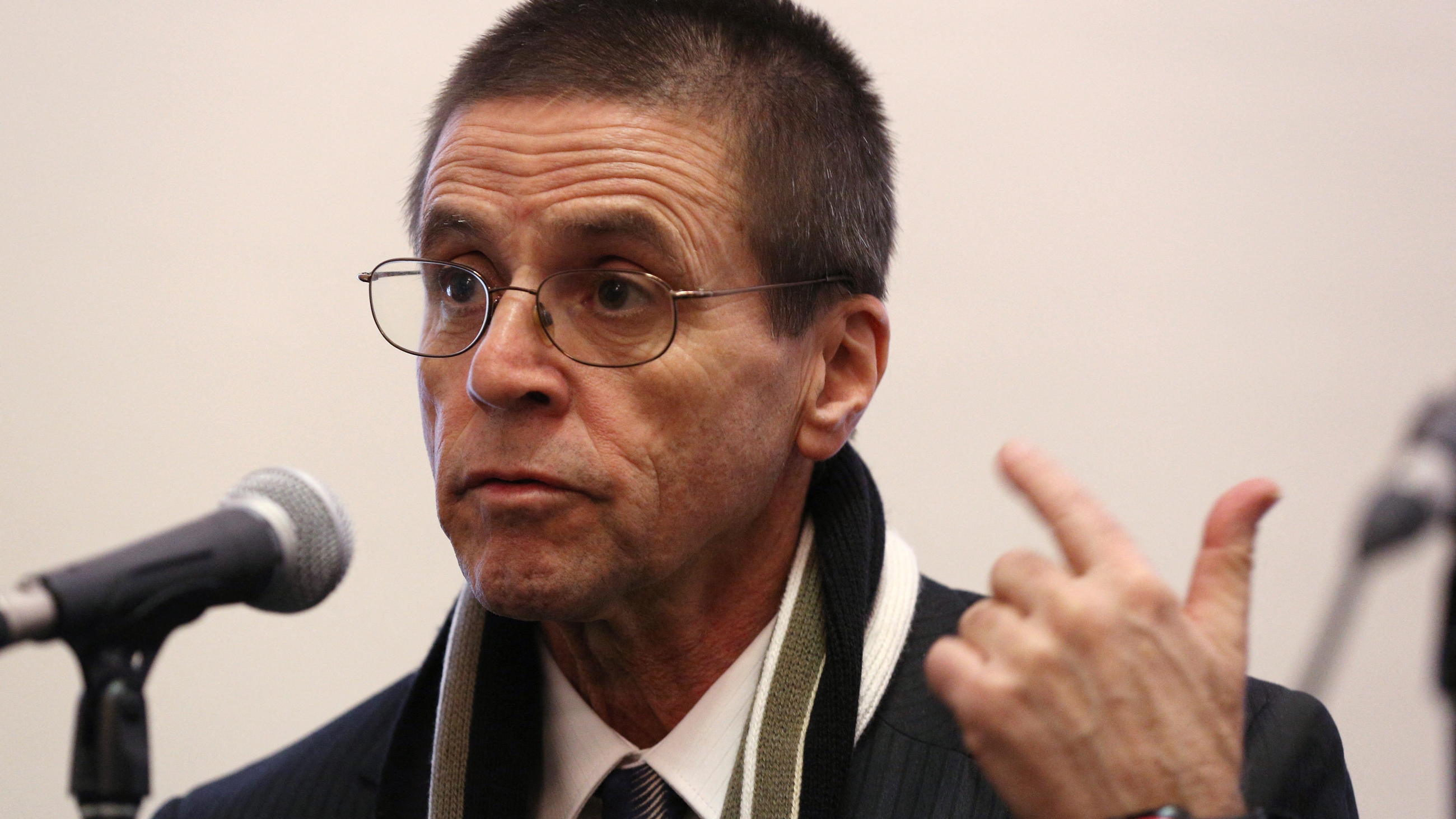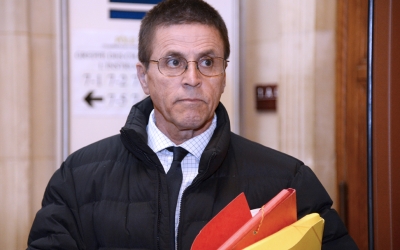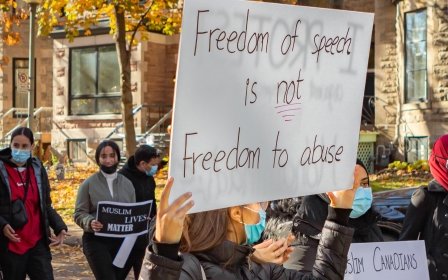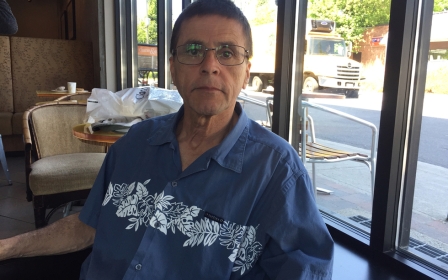Lebanese-Canadian receives life in prison in absentia for 1980 Paris synagogue bombing

A Lebanese-Canadian sociology professor has been convicted by a Paris court in absentia for the 1980 bombing of a synagogue in the French capital, and could be extradited for the second time in less than 10 years.
Hassan Diab, now 69 and a resident of Canada, faces life in prison in France following Friday's court ruling. But he and his supporters want Ottawa to reject any new requests for his extradition.
'We will always be there to stand up for Canadians and their rights'
- Canadian Prime Minister Justin Trudeau
"We will look carefully at next steps, at what the French government chooses to do, at what French tribunals choose to do," Canadian Prime Minister Justin Trudeau told a news conference following the court ruling.
But, he added, "we will always be there to stand up for Canadians and their rights".
A Paris court on Friday followed the prosecutors' request for the maximum possible punishment against the Lebanese-Canadian, after the prosecutors said in their closing arguments that there was "no possible doubt" that Diab, the only suspect, was behind the attack.
New MEE newsletter: Jerusalem Dispatch
Sign up to get the latest insights and analysis on Israel-Palestine, alongside Turkey Unpacked and other MEE newsletters
Speaking to reporters in Ottawa, Diab called the verdict "Kafkaesque" and "not fair".
"We'd hoped reason would prevail," he said, adding that he expects Canada not to send him back to France to serve the sentence.
Attack on French soil
In the early evening of 3 October 1980, explosives placed on a motorcycle detonated close to a synagogue on the Rue Copernic in Paris's chic 16th district, killing a student passing by on a motorbike, a driver, an Israeli journalist and a caretaker.
Forty-six others were injured in the blast.
The bombing was the first deadly attack against a Jewish target on French soil since World War II.
No organisation claimed responsibility, but police suspected a splinter group of the Popular Front for the Liberation of Palestine (PFLP).
French intelligence agents in 1999 accused Diab of having made the 10kg bomb.
They pointed to Diab's likeness with police sketches drawn at the time and handwriting analyses that they said confirmed him as the person who bought the motorbike used in the attack.
They also produced a key item of evidence against him - a passport in his name, seized in Rome in 1981, with entry and exit stamps from Spain, where the attack plan was believed to have originated.
Possible second extradition
In 2014, Canada extradited Diab at the request of the French authorities.
However, investigating judges were unable to prove his guilt conclusively during the investigation and Diab was released, leaving France for Canada as a free man in 2018.
Three years later, a French court overturned the decision and ordered that Diab should stand trial on charges of murder, attempted murder and destruction of property in connection with a terrorist enterprise.
French authorities stopped short of issuing a new international arrest warrant for Diab, effectively leaving it up to him to attend his trial or not.
'Justice very much needed for this bombing... not by scapegoating an innocent man'
- Alex Neve, former head of Amnesty International Canada
Diab has claimed he was sitting exams in Lebanon at the time of the attack, backed up by statements from his ex-partner and former students.
His conviction means he will now again become the subject of an arrest warrant, which risks stoking diplomatic tensions between France and Canada after his first extradition took six years.
Diab has won some backing from NGOs, including Amnesty International, who said his assertion that he was in Lebanon at the time of the attack was credible.
The former head of Amnesty International Canada, Alex Neve, called the court's ruling "disgraceful".
"15 yrs of surreal injustice for Hassan Diab culminate in disgraceful in absentia verdict. Justice very much needed for this bombing 42 yrs ago; not by scapegoating an innocent man," Neve tweeted, calling on Canada to refuse if France seeks extradition for the second time.
Meanwhile David Pere, a lawyer for some of the people present in the synagogue at the time of the bombing, said his clients were "not motivated by vengeance nor looking for a guilty person's head to stick on a pike... they want justice to be done".
Middle East Eye delivers independent and unrivalled coverage and analysis of the Middle East, North Africa and beyond. To learn more about republishing this content and the associated fees, please fill out this form. More about MEE can be found here.





